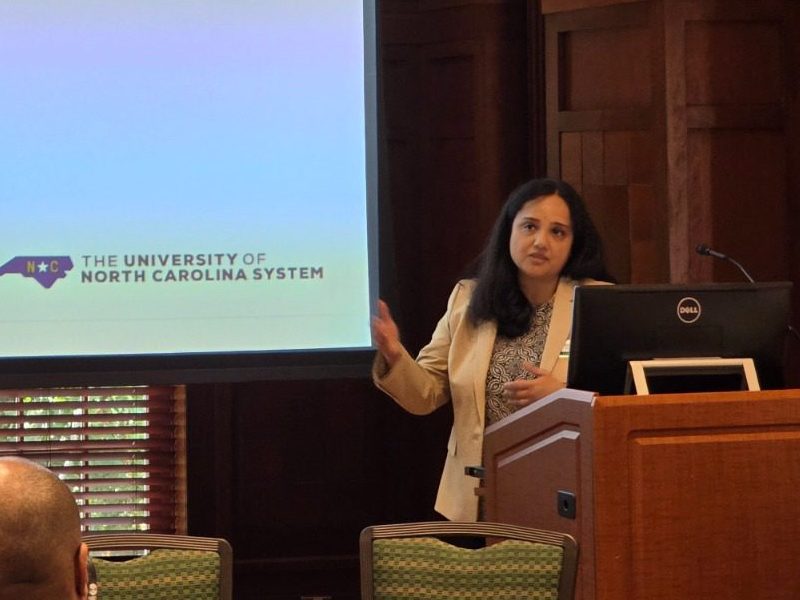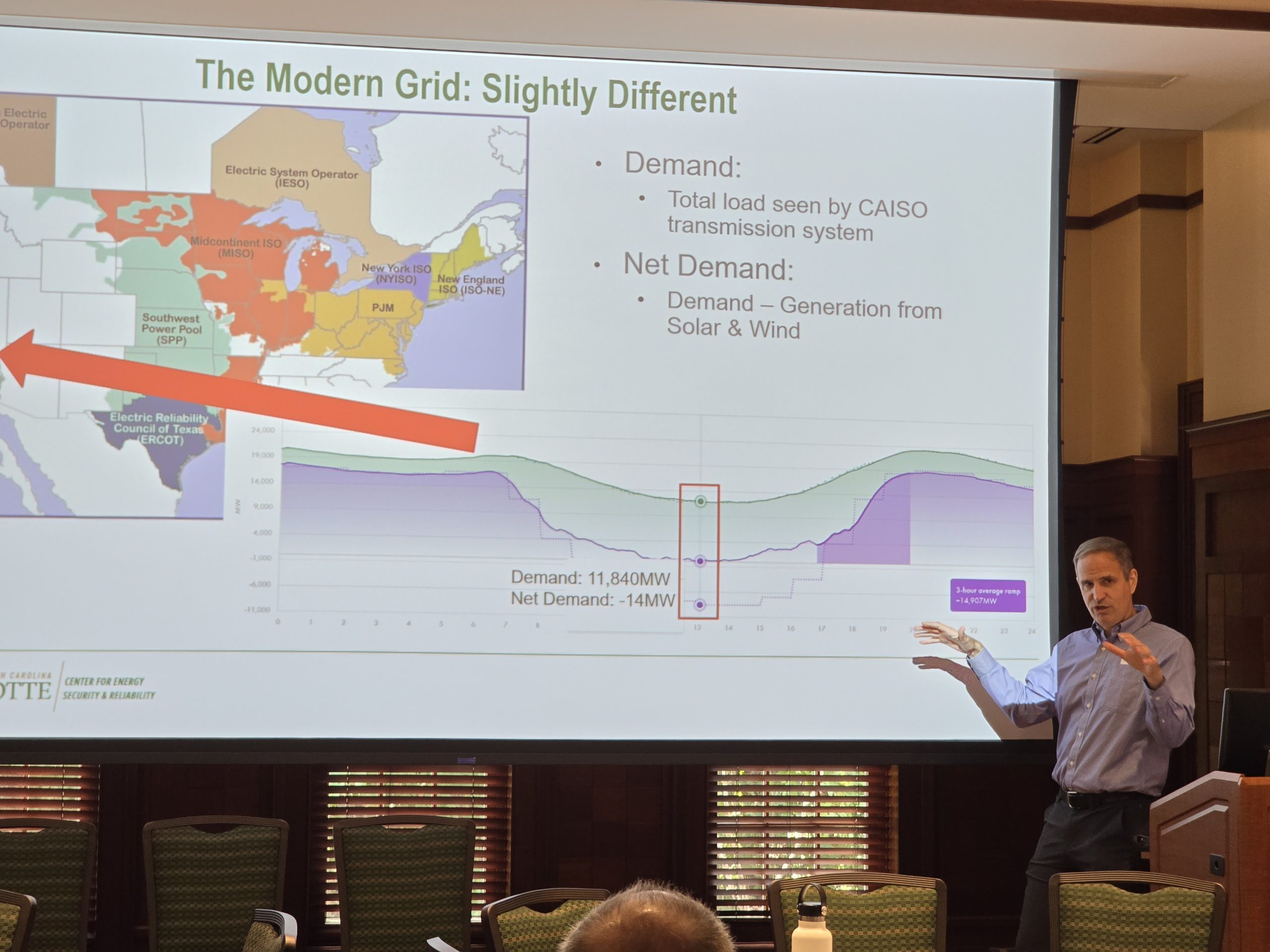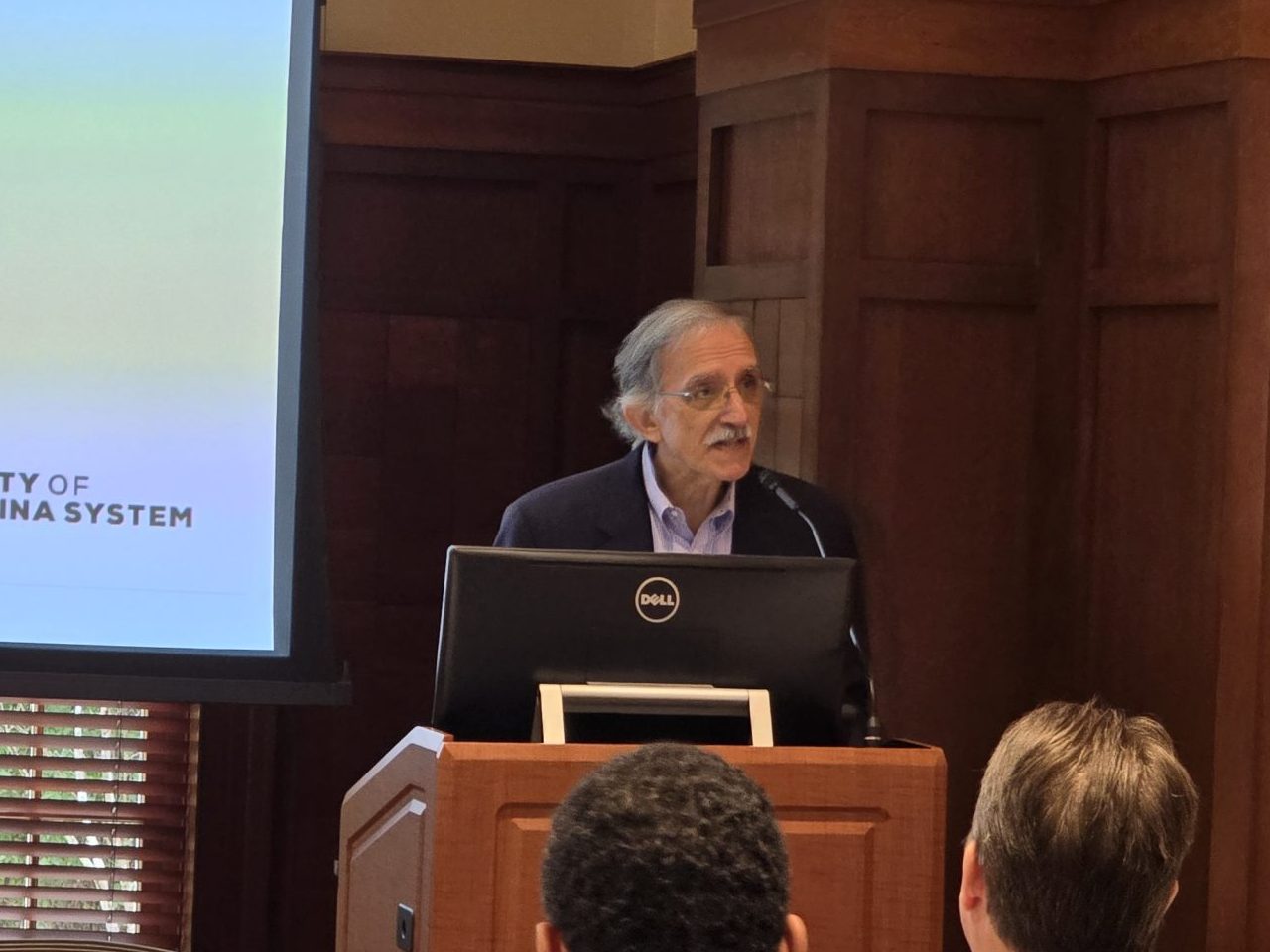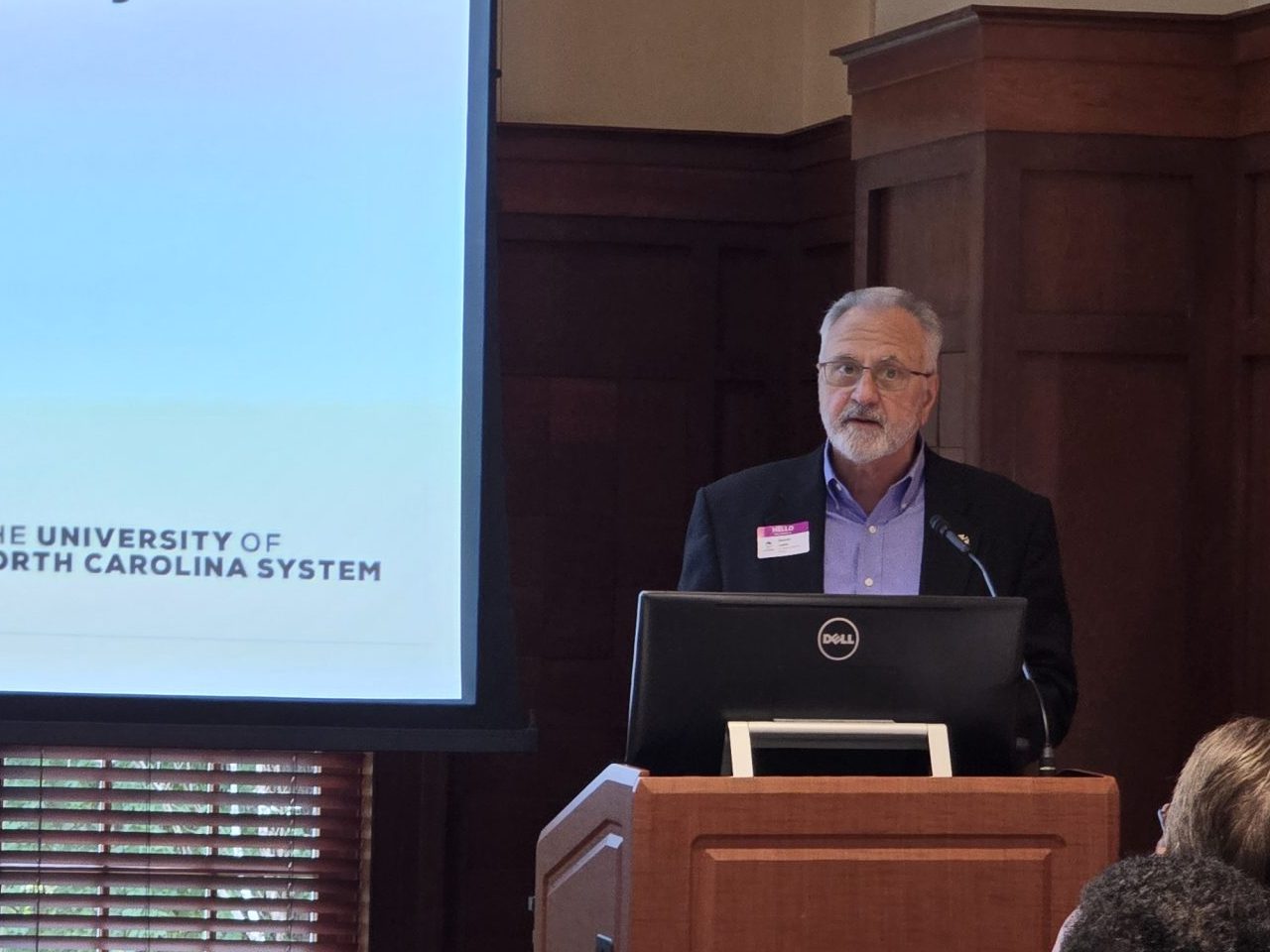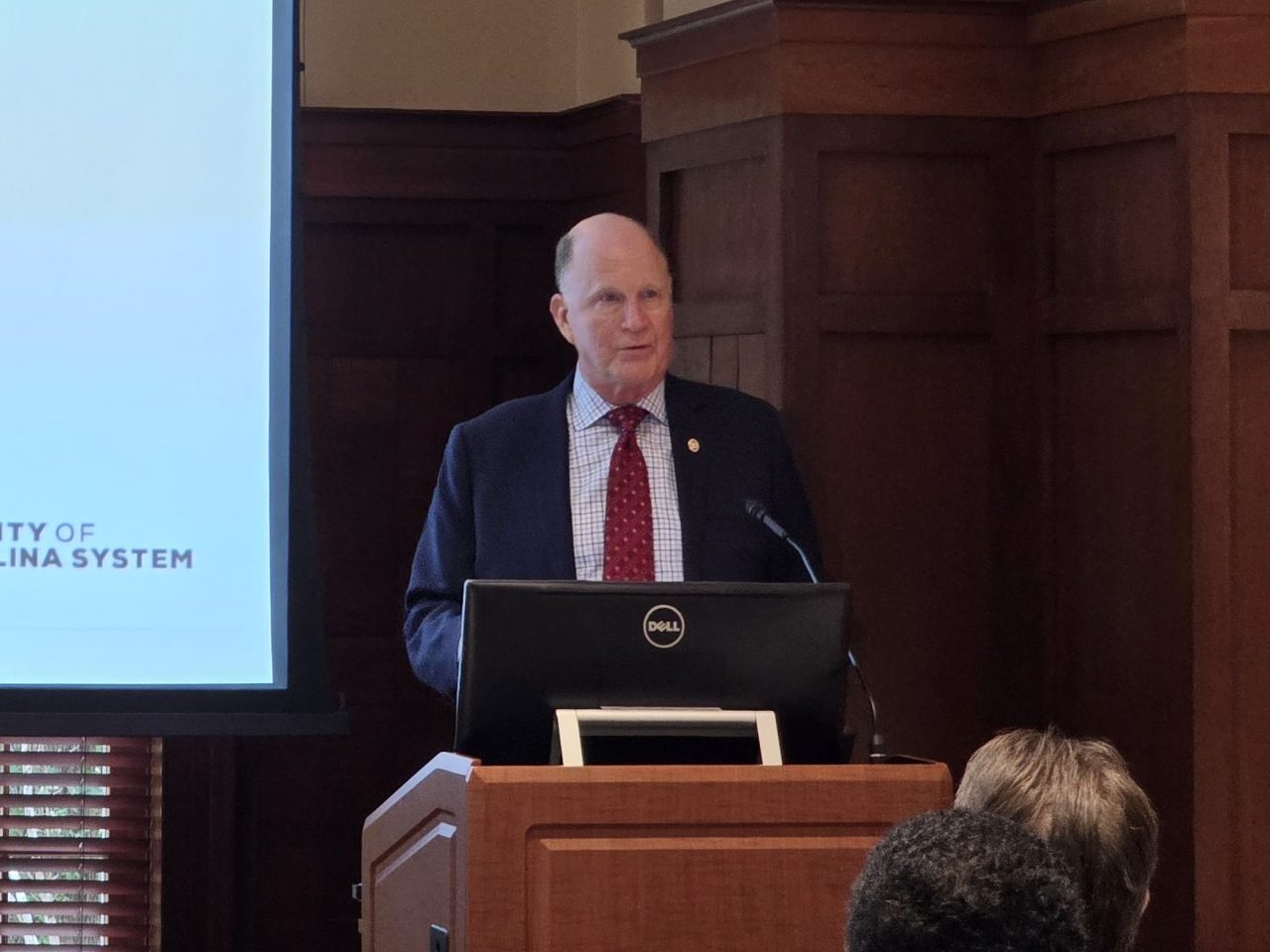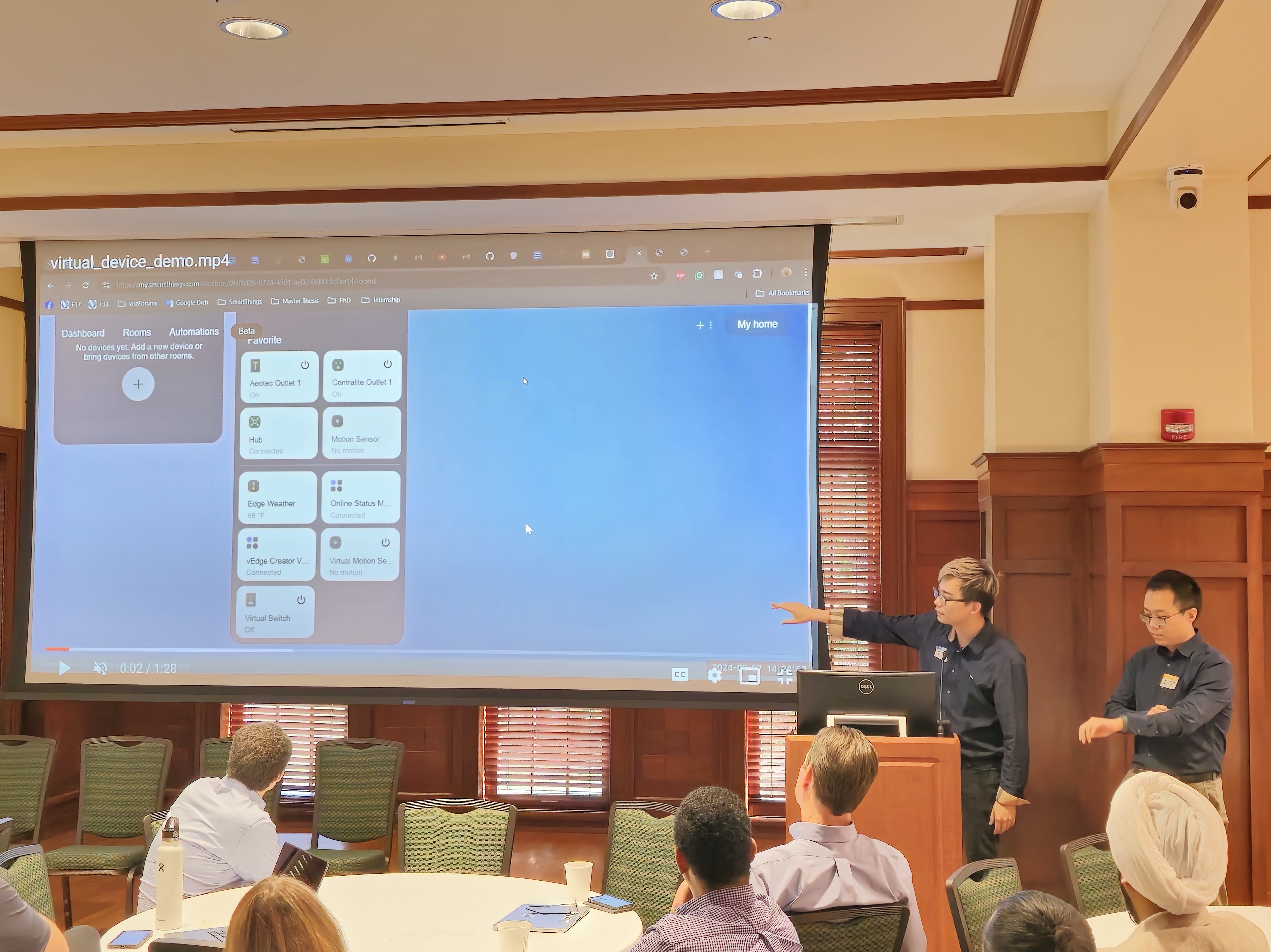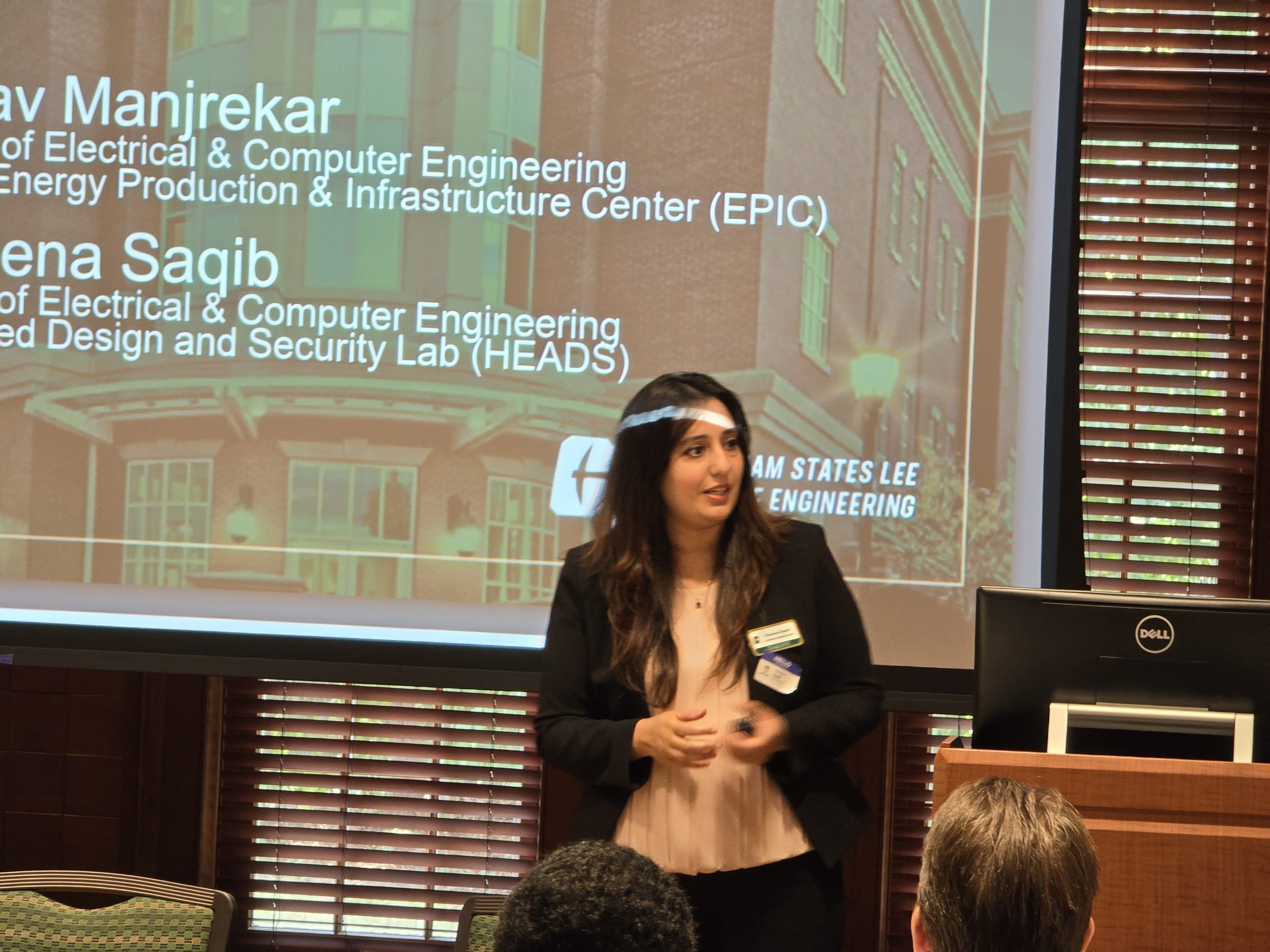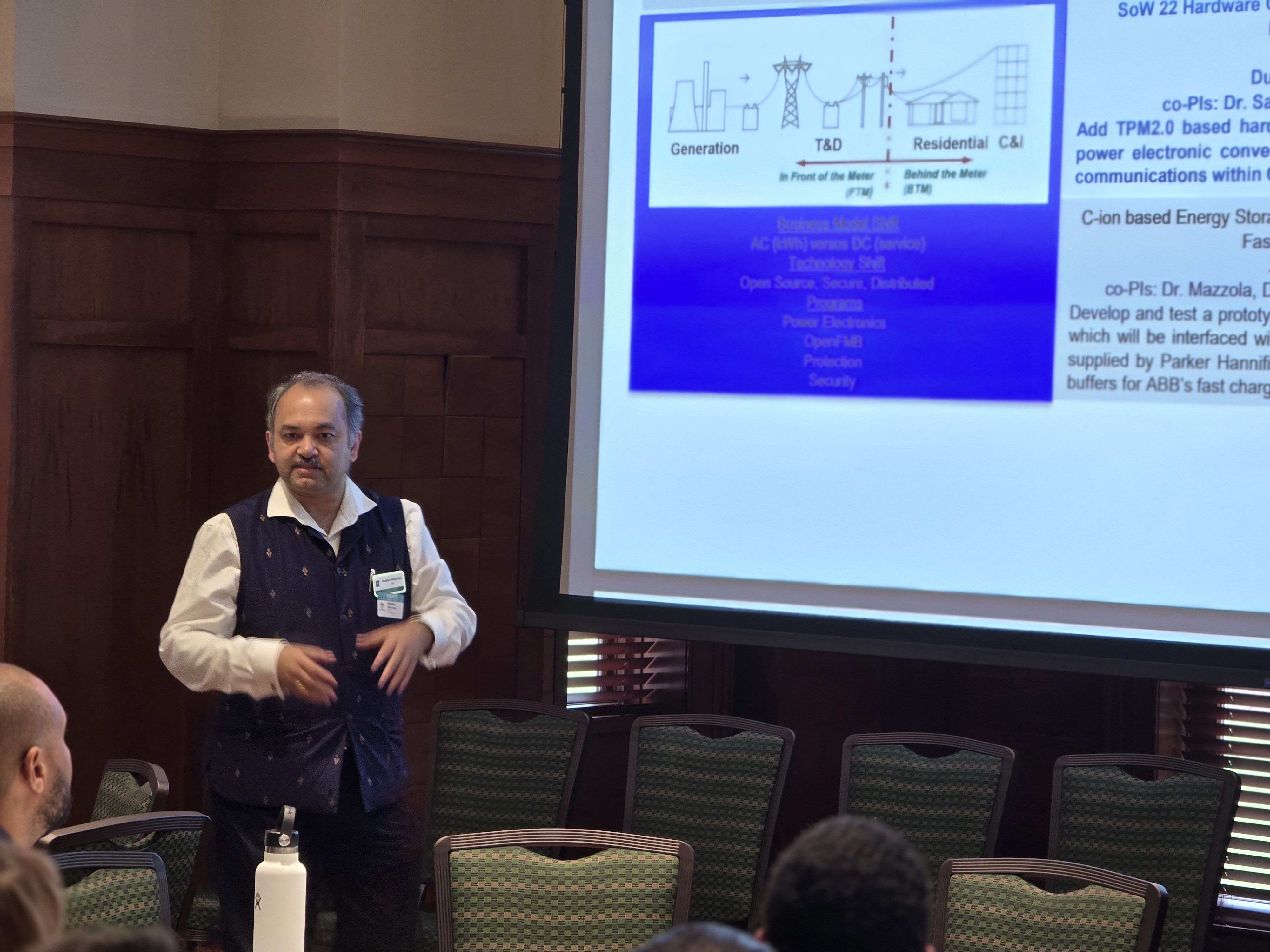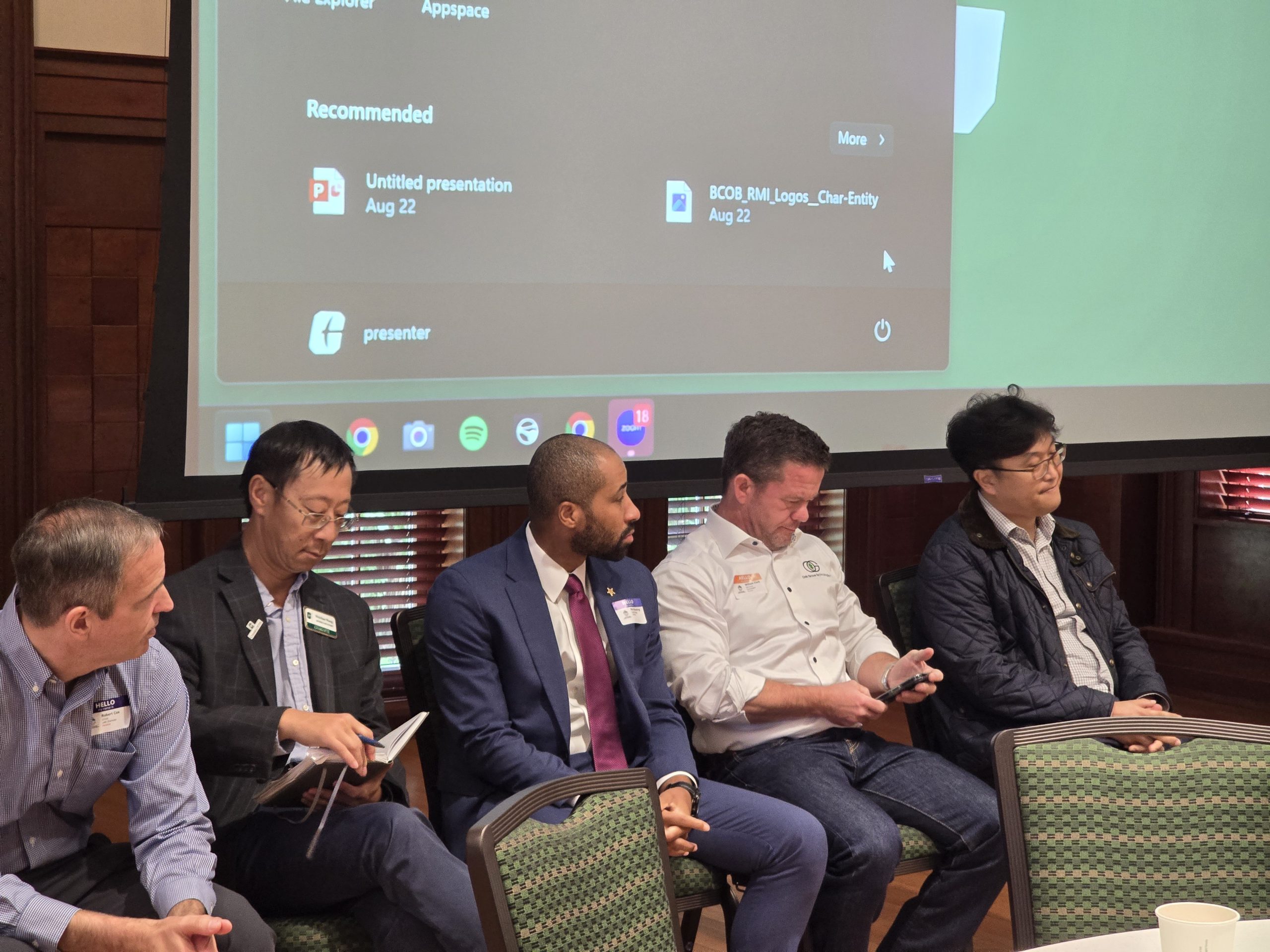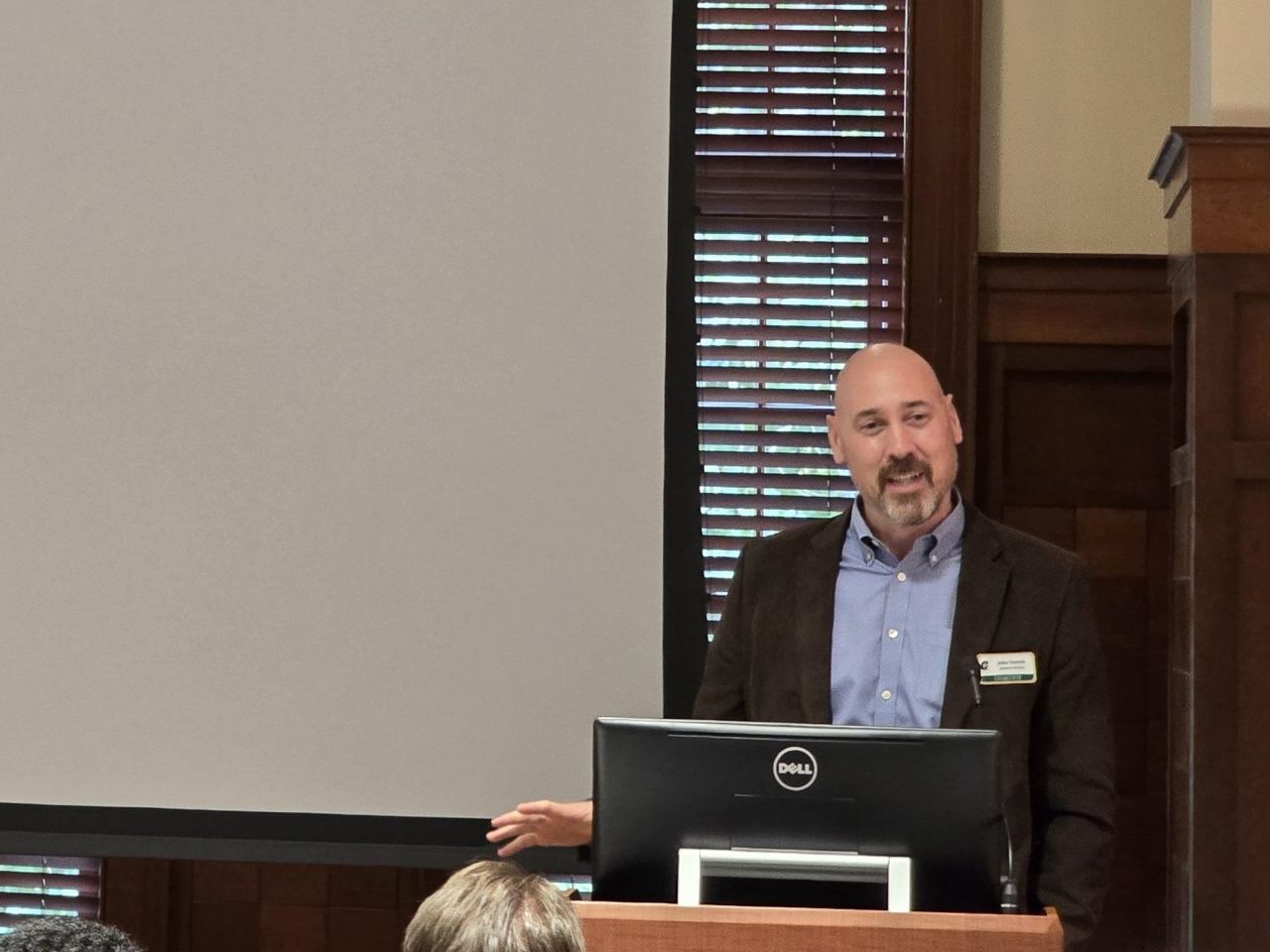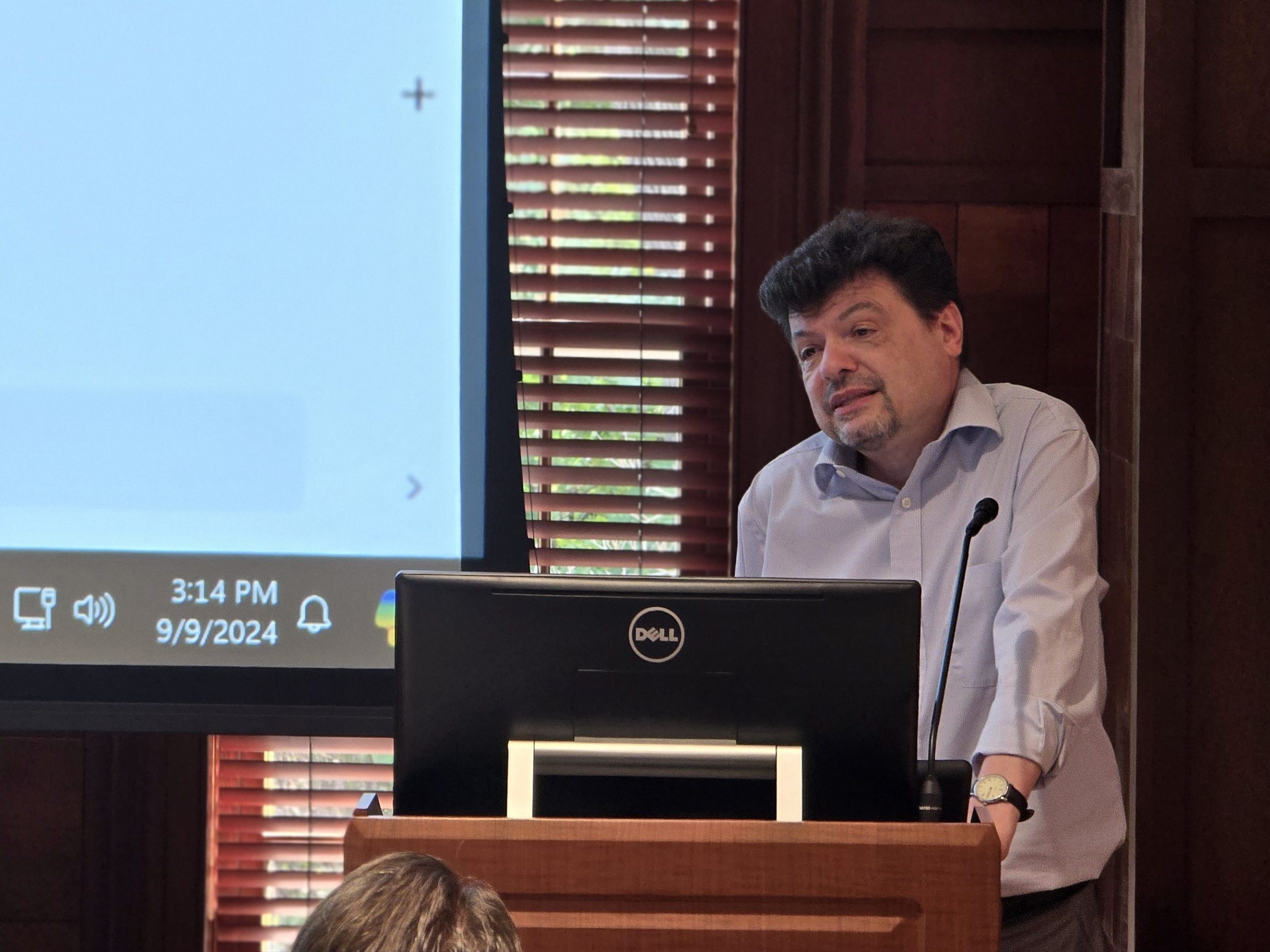CESAR Successfully Hosts Defense Alliance Foundation Joint Forum on Grid Edge Security
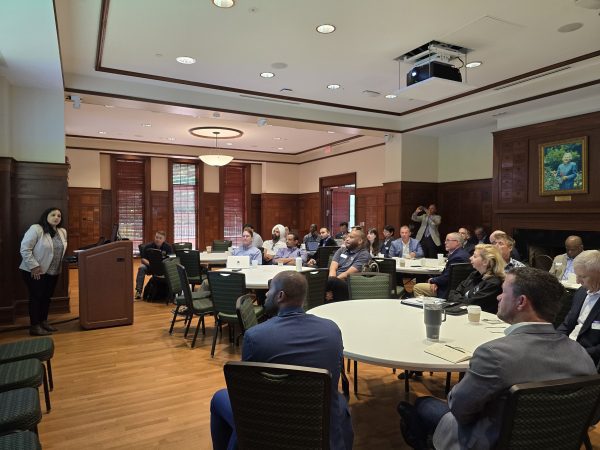
Charlotte, NC— On September 9, 2024, the Center for Energy Security and Reliability (CESAR) at UNC Charlotte hosted its first-ever Grid Energy Security Forum, uniting experts, industry leaders, and students to address the growing challenges in securing distributed energy resources (DERs) and grid security.
The event began with opening remarks from Phil Williams, Science and Technology Chair of the Defense Alliance of North Carolina, who underscored the urgency of tackling cybersecurity threats in the energy sector. “With the increasing integration of DERs, we’re opening new doors for cyberattacks. It’s critical that we strengthen collaboration between academia, industry, and government to build resilient systems,” Williams emphasized.
Col. David Hayden (ret.) followed with insights into North Carolina’s strategic military investments and the importance of grid security for national defense. “The state’s commitment to military spending and cybersecurity plays a pivotal role in protecting national interests,” Hayden noted, adding that secure energy infrastructure is a vital part of overall security.
Dr. Meera Sridhar, Director of CESAR, highlighted the center’s mission and its ongoing efforts to develop innovative solutions to safeguard the grid. “At CESAR, we are at the forefront of research in energy security, and our testbeds offer a unique opportunity to explore vulnerabilities and develop robust defenses,” Sridhar said. She reiterated that CESAR’s goal is to bridge the gap between research and real-world implementation.
Dr. Fareena Saqib and Dr. Madhav Manjrekar presented CESAR’s representative project portfolio, showcasing their ongoing research into hardware security and the integration of renewable energy systems into the grid. Dr. Saqib focused on the importance of secure hardware designs in critical infrastructure, while Dr. Manjrekar highlighted CESAR’s efforts to enhance grid resilience through advanced energy storage and power electronics solutions.
The forum featured engaging discussions led by William Clark of Oak Grove Technologies and Ron Meeting, CEO of Rapid Strategy, who stressed the importance of staying ahead of potential threats. Robert Cox, Executive Director of EPIC, reinforced the significance of research in building grid resiliency through CESAR’s advanced testbeds.
Student demonstrations showcased CESAR’s capabilities in addressing these challenges. Nicholas Wind McJetters and Zachary Palko presented the Hardware-in-the-Loop Testbed, Aditya Bijoor and Jesse Zarmai demonstrated the large-scale software-based testbed, and Huan Bui and Dr. Chenglong Fu introduced virtual device simulations.
Event Photos:

